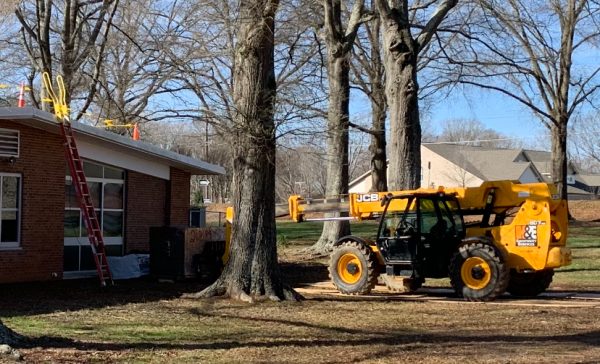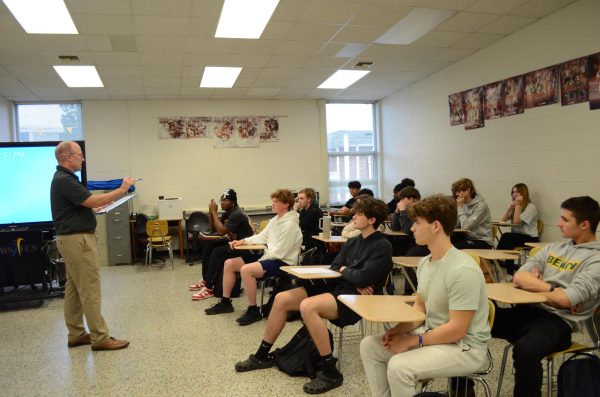Hurricane Dorian hits the eastern coast
September 16, 2019
Hurricane Dorian attacked cities across the Atlantic devastating communities. Dorian, originally a category five hurricane, hit the Bahamas, the Carolinas and Canada the first week of September.
Starting in the Bahamas, Dorian wreaked havoc on its citizens, killing approximately 43 people and leaving more than 70,000 homeless. Homes were turned into rubble, and a mass evacuation occurred as a result. “We acknowledge that there are many missing and that the number of deaths is expected to significantly increase. This is one of the stark realities we are facing in this hour of darkness,” Bahaman Prime Minister Hubert Minnis said. Many people are still missing and unable to be reached, but search and rescue efforts have slowed down.
Hurricane Dorian was expected to make landfall in Florida next but instead headed towards the Carolinas. Winds strengthened as it approached South Carolina with top winds at 110 miles per hour, reaching a category two status. Charleston, South Carolina faced major flooding and had 200,000 reported power outages. In North Carolina the Outer Banks faced the greatest impact of the hurricane, also enduring tornadoes. “We’re used to cleaning up dead limbs and trash that’s floating around. But now it’s everything…It’s overwhelming,” Ocracoke Island resident and business owner, Philip Howard, said. Both states faced up to 20 inches of rain and flash flooding. Four deaths were reported due to storm preparation before Dorian made landfall.
Dorian was downgraded to a tropical storm as it made its way towards Canada’s Atlantic coast. Strong winds and heavy rain caused destruction in Nova Scotia, a Canadian municipality. The storm made landfall Sept. 7 with winds reaching 97 miles per hour. The combination of the winds and rain left 500,000 people without power or ways to contact help. Most of the area was shut down, but residents left their homes, blocking roads and preventing emergency services to enter the city.
Dorian is now 375 miles offshore of Canada and is expected to be absorbed by a low pressure system. While Dorian is no longer a threat, the Bahamas are devastated and need help. Donate to the National Association of the Bahamas and Operation Helping Hands to aid the people of theBahamas in their long road to rehabilitation.












